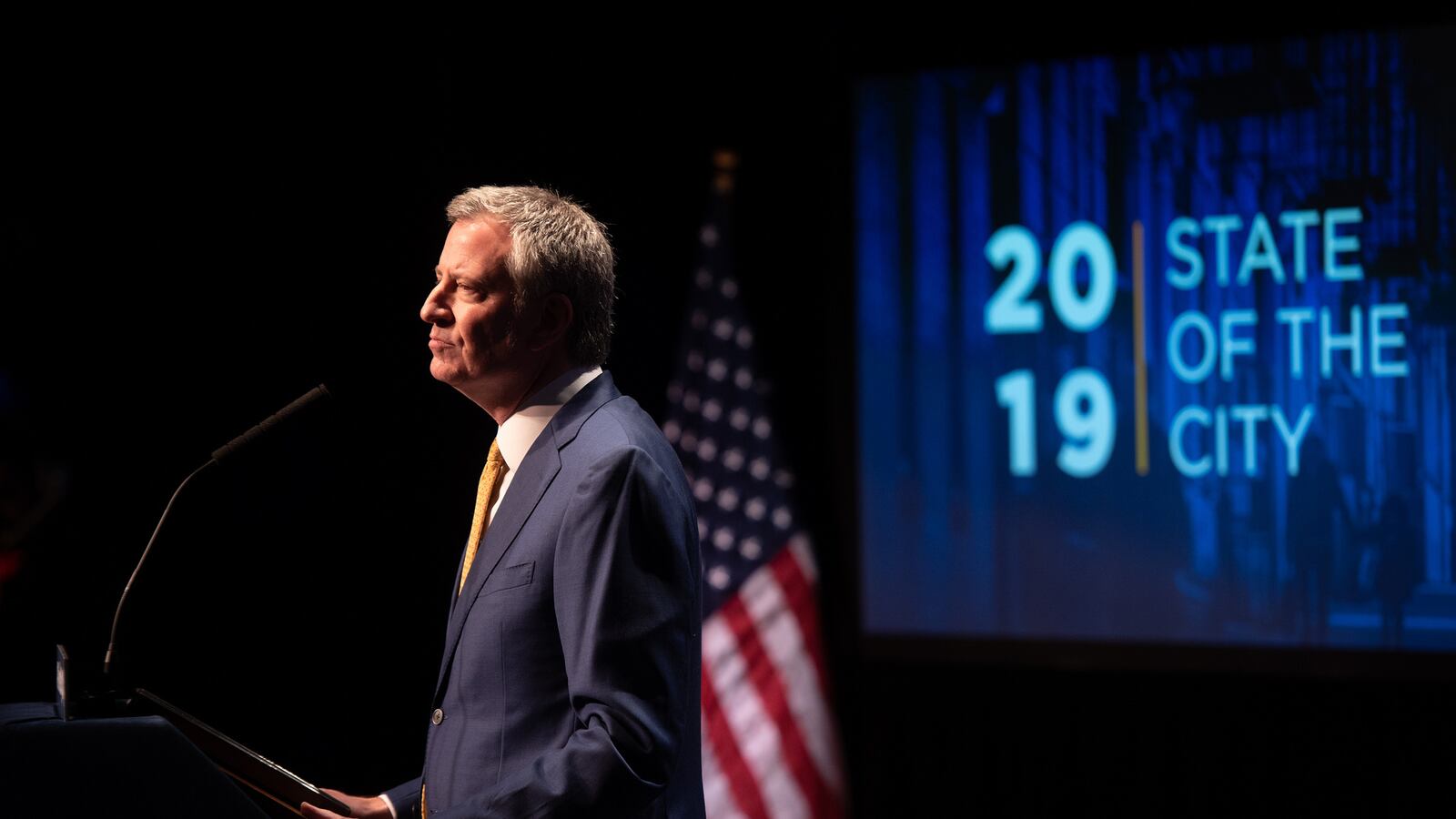Even with a backdrop of economic uncertainty, Mayor Bill de Blasio proposed to pump another $300 million for New York City special education services into next year’s budget.
Most of this money will be used for more teachers and paraprofessionals to “implement individualized education programs,” a City Hall spokesman said Friday. A portion of it, he said, would go toward programs in bilingual special education and autism spectrum disorder.
De Blasio mentioned the $300 million boost on Thursday as he released his preliminary budget proposal. And he mentioned it Friday on WNYC’s Brian Lehrer show without offering specifics; details were only just starting to emerge about how the money will be spent Friday afternoon.
It’s a significant dollar amount — more than the annual cost of the Mayor’s Renewal turnaround program, which cost $192 million last year. And it comes amid de Blasio’s request for agencies, including the education department, to cut spending by a total $750 million by April.
The city has historically struggled to provide special education services to all of the 224,000 students who have disabilities, a population larger than Houston’s entire school system. The city has acknowledged that roughly a quarter of those students don’t receive all of the services listed on their individual learning plans.
“It sounds like they are seeing those same trends and that it’s an attempt to meet those needs,” said Maggie Moroff, a special education policy coordinator at Advocates for Children, an organization that helps families navigate the special ed system.
In his weekly appearance on Brian Lehrer, de Blasio received a question from a mother who is seeking special education services for her son. As part of his response, de Blasio said, “We were just talking about $300 million more is in this budget because we’ve added to special education again. It’s a lot of money, but our children are precious and we have to support them, and we have to support their parents.”
Special education advocates said they welcomed the increase in funding, but had not been briefed on it in advance.
“It’s nice to see that the mayor is choosing to give additional funds for special education,” said Lori Podvesker, a disability policy expert at INCLUDEnyc and a member of the city’s Panel for Educational Policy. “I don’t know what it’s for.”
It was not immediately clear whether the funding was needed to help support an increasing number of students with disabilities who receive private school tuition reimbursements from the city. The education department now spends about $325 million a year on those payments, a figure that has risen significantly under de Blasio.
It’s also not clear whether the increased funding could go to other high profile problems, including the notoriously glitchy and expensive data system that is meant to track students’ learning plans; shortages of qualified special education teachers; or improving access to services such as occupational and physical therapy.
Schools Chancellor Richard Carranza has acknowledged problems with the city’s special education system and has reorganized the way it is supervised. It now falls under the city’s new Chief Academic Officer, Linda Chen, instead of a deputy chancellor.

